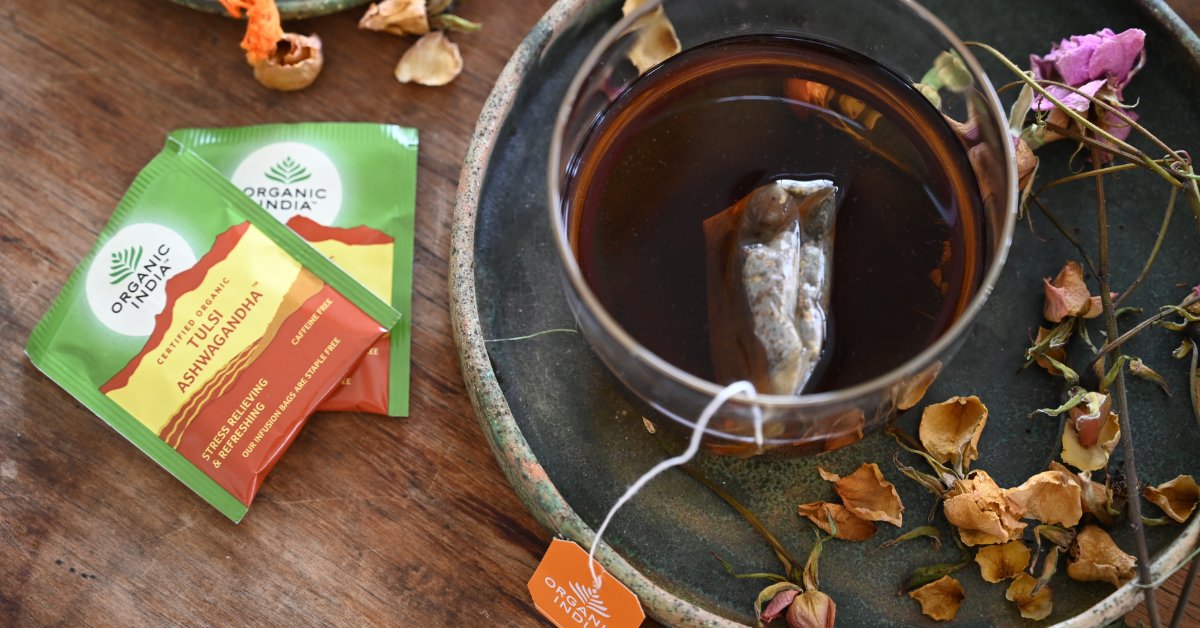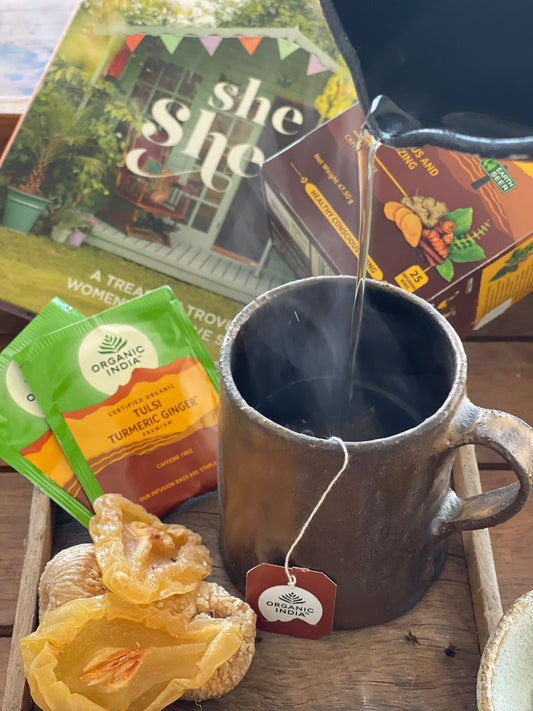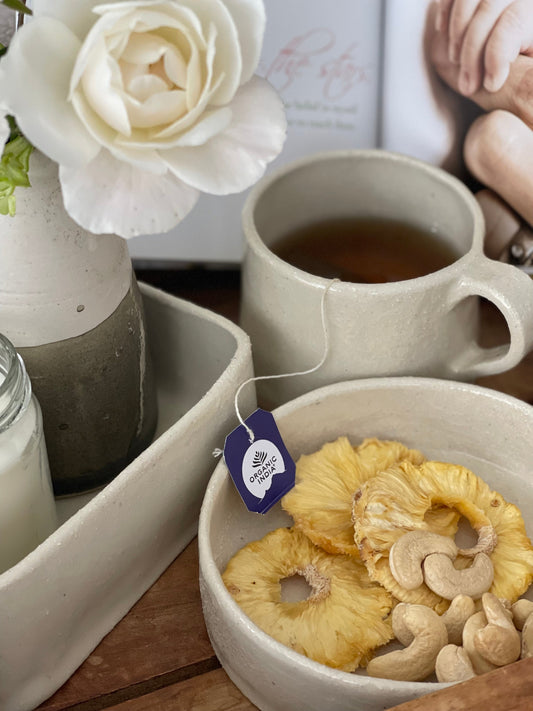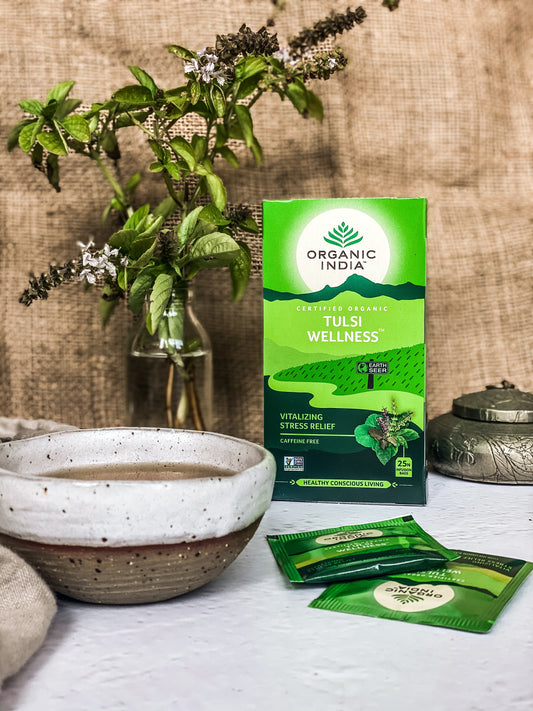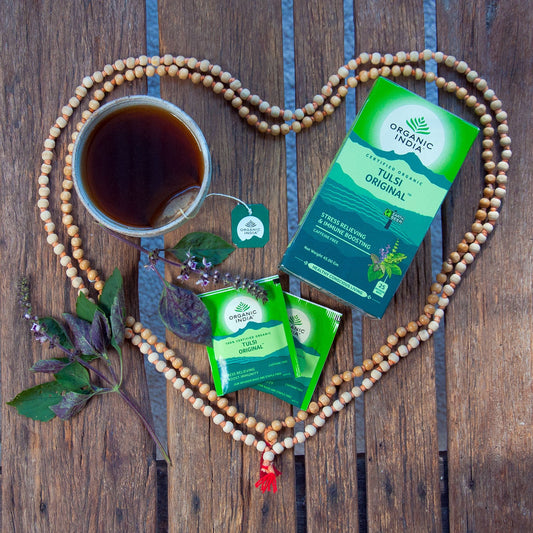As much as we love celebrating Christmas with family and friends, we also relish the tranquillity of the New Year. We thrive on January quietude as we’re either on holidays or the other half of the nation is. The rhythm this time of year starts to take over. Summer days are longer, full of heat and the pace is slower than almost every other month of the year.
This gives us space to rest, reflect, contemplate, and consider how to approach the new year. It’s a time for simplicity, returning to the basics, refreshing our priorities. We are usually reminded that we feel much better because we have less on our plate, aren’t rushing or feeling stressed. We resolve to relate better to stress. This is where we can lean on the time-tested simplicity of Ayurveda.
Ayurveda considers stress to be a disturbance of the nervous system and acknowledges that each constitution relates differently to stress and has different needs around stress management. There is an overarching two-pronged approach.
- To minimise stress wherever possible, and
- Wherever stress is unavoidable, try to find a healthy way to relate to it.
Minimising Stress
Stress is a natural part of life and in healthy amounts it can influence us positively. It can make us either face our challenges head on (fight) or run away from danger towards safety (flight). A modest amount of stress can motivate us and drive us to be successful in our pursuits. Ongoing subliminal or traumatic stress however, can not only drain our energy and vitality levels but directly affect our immunity and long term wellbeing.
Some life experiences such as losing a loved one or being diagnosed with a chronic illness can be extremely stressful and cannot be avoided. However, there are other stressful situations that can be avoided and thus, when we can identify the avoidable stress, we can save our nervous system a lot of unnecessary anxiety and insomnia (two common stress symptoms).
Being clear and objective on how often we experience stress and identifying our regular sources of stress can be highly valuable. There are many ways to do this. We suggest keeping a notebook and in quiet reflective moments, jot down when or how often you feel stressed, and what are your sources of stress? For the second question, keep two columns- the first column is for the list of experiences that you find stressful and that you can’t really change e.g., family conflict, or moving interstate to start a new job. The second column is for situations that stress you out, which can be avoided e.g., being overwhelmed due to disorganisation. Take your time to work on this list, it may take some time, but your innate wisdom will make sure those stressful situations do surface to your awareness.
Once your list is relatively complete, try working through the second list (the stressors that could be avoided) and attempt to put some strategies in place to minimise stress from these sources. Deciding to implement organisational strategies to help with feeling overwhelmed, could be a great start. Another example would be looking to see if the circle of friends, colleagues or family you hang with regularly stress you out, perhaps you need to selectively review whose company you wish to keep this year. Setting dates to hang with those who vibe as positively as you do. Some powerful moves can result from going through this process – you could be surprised how uplifting and energising it is.
Turning back to the first list. The heavier, harder-to-face sources of stress that you can’t change – these might be relationship challenges or financial hardship. Here is where you cultivate the healthiest relationship that you can with your stress. Some intelligent self-care strategies can help carry you through these tough phases. We suggest drawing from the power of Ayurveda to safeguard your energy and vitality so take time to figure out what works best for your individual constitution. Daily rhythms such as sleeping well, eating nutritious food and exercising regularly can offer solid support and sustenance. Further diet and lifestyle suggestions can be added based on your dosha.
Popular tried and tested strategies that can reinforce your Body-Mind and help you roll with the punches include;
- Exercise releases endorphins, helps us sleep better and gives us confidence to face the world.
- Breathing techniques can help our parasympathetic nervous system stay in charge rather than our sympathetic nervous system (our stress response).
- A Mindfulness Practice such as yoga and meditation will help maintain good physical, mental and emotional wellbeing.
- Cutting back on caffeine reduces agitation and anxiety and helps calm our body & mind.
- Adding Adaptogens, scientifically proven powerful herbs that assist a healthy stress response.
- Write it down. Sharing worries with a journal regularly can lighten the mental load.
- Talk it out with a trusted friend or therapist who listens attentively without judgement.
- Time in nature is a natural harmoniser.
- Cuddling a pet is scientifically proven to lower blood pressure.
- Time alone to rejuvenate such as a lazy, nourishing Sunday morning or a mid-week early mark.
- Time with good friends and family who offer love and support no matter what.
- Fill your joy cup. If it’s Hawaiian dance or playing the piano, do it regularly, just for you.
- Schedule regular digital detoxes. Feel instantly happier, more productive and creative.
- Laughter gets feel good hormones flowing. Watch comedy, giggle with children- Laugh whenever the opportunity arises.
- Practice healthy boundaries. When we say no to one thing, we are saying yes to another.
- Slow down. Watch out for the ojas (vital force) depleting Rushing Women’s (or Men’s) Syndrome.
- Be realistic about what is achievable in a day. Taking on too much can equate to automatic overload (and Rushing Person’s Syndrome).
There are options aplenty when it comes to self-care. Each of us will know which nourishing activities work best for our own mind and body. Based on our own uniqueness, we may need to focus more on minimising our sources of stress or putting strategies in place to respond in a healthier way to our stress.
Don’t forget, feeling anxious, overwhelmed, depressed and unable to sleep can all be perfectly normal in short bursts, however if stress symptoms continue and they interfere with your home or work life you may need some additional support. Experts generally suggest seeking professional support whenever feelings of depression last longer than two-three weeks.
For everything else, lean on the simplicity of identifying the triggers, and establishing healthy support systems. Despite stress being a natural part of life, may the nourishment of self-care and a dependable rhythm make 2022 your most vital and uplifting year yet.
